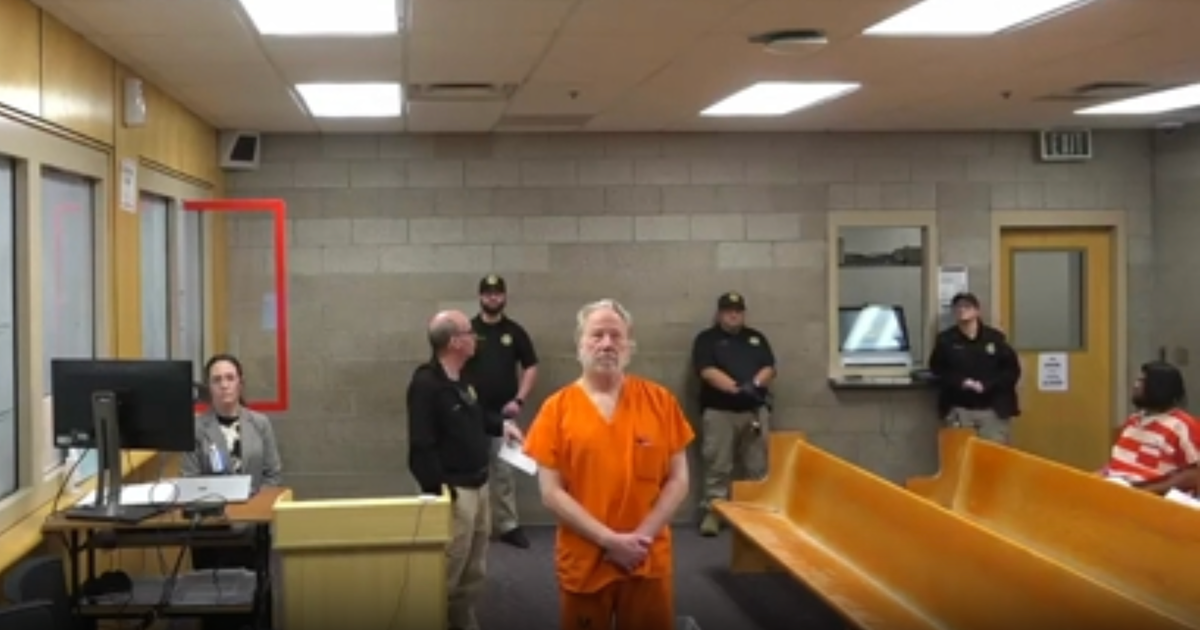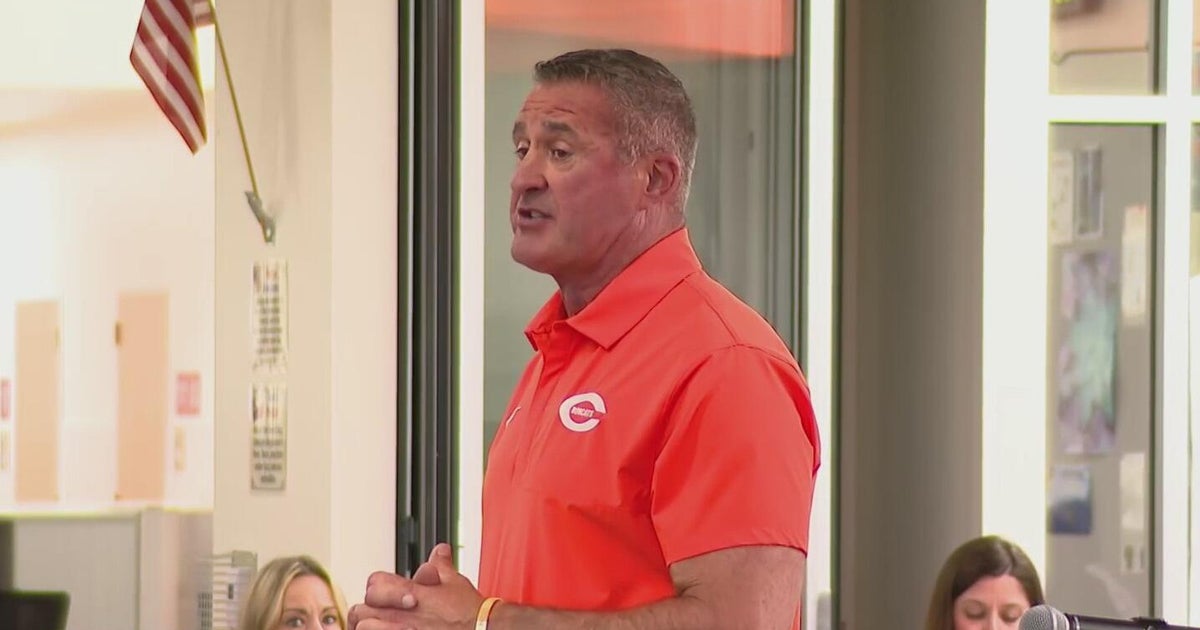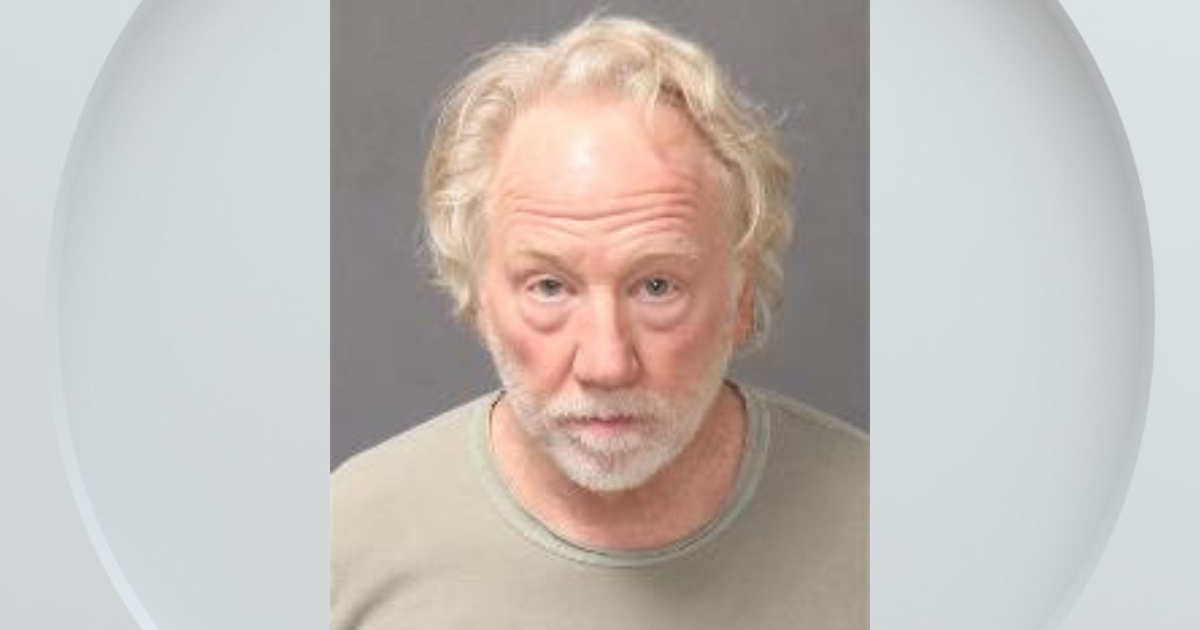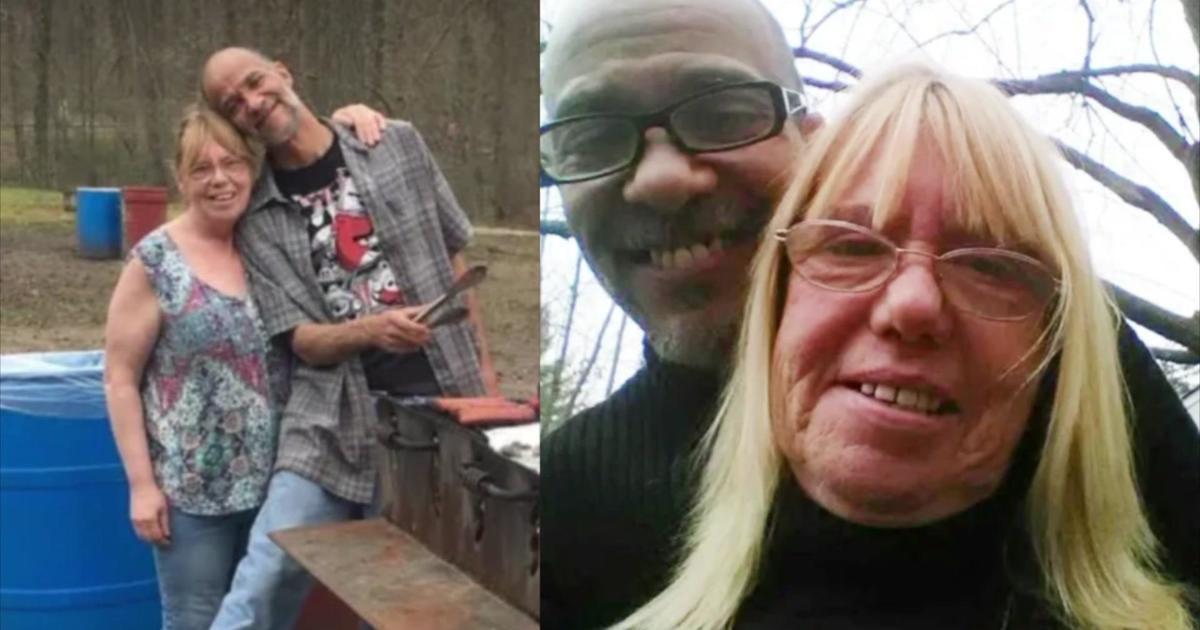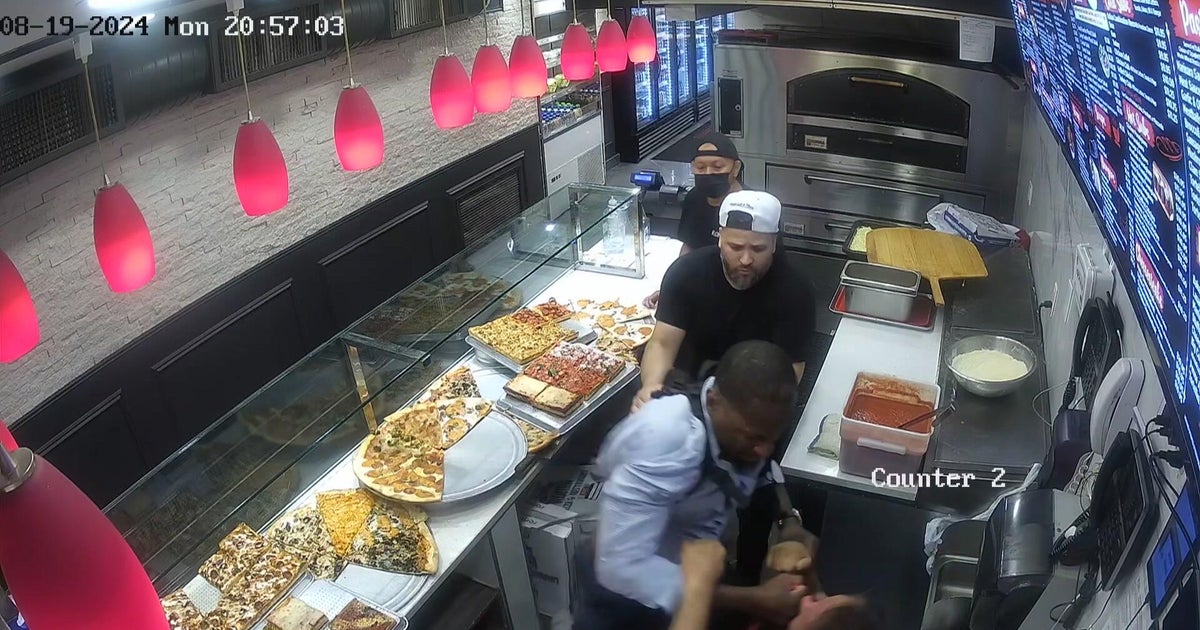Sandusky Sentenced To At Least 30 Years In Child Sex Abuse Case
BELLEFONTE, Pa. (CBSNewYork/AP) -- Jerry Sandusky has been sentenced to at least 30 years in prison in the child sexual abuse scandal that brought shame to Penn State and led to coach Joe Paterno's downfall.
Judge John Cleland sentenced him to 30 to 60 years in prison. Under Pennsylvania law, Sandusky cannot be released on parole before the minimum term is up.
The sentence means the 68-year-old former Penn State assistant coach will be in prison at least until he's nearly 100 years old.
"The tragedy of this crime is that it's a story of betrayal. The most obviously aspect is your betrayal of 10 children," Cleland said before the sentencing. "I'm not going to sentence you to centuries in prison, although the law will permit that."
A defiant Sandusky gave a long, rambling statement in which he denied the allegations and talked about his life in prison and the pain of being away from his family.
Before sentencing, Cleland designated Sandusky as a sexually violent predator under the state's Megan's Law. Sandusky didn't oppose a review panel's finding that he be given the designation.
The label essentially has no effect on Sandusky, since it requires lifetime registration with authorities after a convict is released from prison.
Three victims also spoke Tuesday, often fighting back tears. One looked Sandusky in the eyes at times.
Among the three who spoke, a young man who said he was 11 when Sandusky groped him in a shower in 1998 said Sandusky is in denial and should "stop coming up with excuses.''
"I've been left with deep painful wounds that you caused and had been buried in the garden of my heart for many years," he said.
Another victim who spoke had testified that he was raped over the course of years by Sandusky, including on team trips to bowl games in Texas and Florida.
"I want you to know I don't forgive you and I don't know if I will ever forgive you," he said. "My only regret is that I didn't come forward sooner."
In sentencing the ex-coach, Cleland called Sandusky dangerous, saying, "You abused the trust of those who trusted you."
Sandusky maintains his innocence and plans to appeal, a process his lawyer has said will probably begin in the coming weeks.
In a three-minute monologue that aired Monday night by Penn State Com Radio that used some of the same language as his courtroom statement, Sandusky said he knows in his heart that he did not do what he called "these alleged disgusting acts" and described himself as the victim of Penn State, investigators, civil attorneys, the media and others.
"Over and over, I asked 'Why?' Why didn't we have a fair opportunity to prepare for trial? Why have so many people suffered as a result of false allegations?'" Sandusky told PSU Com Radio on Monday.
Sandusky was convicted in June of abusing 10 boys over 15 years, including some attacks inside Penn State athletic facilities. Witnesses said Sandusky used the charitable organization he founded for troubled children as his personal hunting ground to find and groom boys to become his victims.
But Sandusky said Monday that he did not abuse boys and was wrongly convicted.
"What's the purpose? Maybe it will help others — some vulnerable children who could be abused — might not be because of all the publicity," Sandusky said.
Sandusky's statement Monday also blasted many for what he called a conspiracy -- including the initial whistleblower, assistant football coach Mike McQueary, who reported he saw Sandusky sexually assaulting a boy in a Penn State locker room shower.
Sandusky said McQueary wanted fame and fortune.
"A young man who was dramatic, a veteran accuser and always sought attention started everything," Sandusky said. "He was joined by a well-orchestrated effort. They won."
One element of the appeal is expected to be a claim that the defense did not have time to adequately prepare for trial. Sandusky was charged in November following a lengthy investigation.
The eight victims who testified against Sandusky at trial described abuse that ranged from grooming and fondling to oral and anal sex. Sandusky did not take the stand, but gave interviews shortly after his arrest in which he declared he was not guilty.
"They could take away my life, they could make me out as a monster, they could treat me as a monster, but they can't take away my heart," Sandusky said Monday. "In my heart, I know I did not do these alleged, disgusting acts."
Along with Sandusky, prosecutors last year also arrested two Penn State administrators and charged them with lying to the grand jury that investigated Sandusky and failing to properly report suspected abuse.
Tim Curley, the athletic director on leave, and Gary Schultz, a retired vice president for business and finance, deny the charges and await trial.
The case led to the firing of longtime head football coach Joe Paterno, who died from lung cancer in January, and the ouster of university president Graham Spanier, who remains a faculty member.
Over the summer, an investigation commissioned by the university and led by former FBI Director Louis Freeh concluded that Paterno and other top officials covered up allegations against Sandusky for years to avoid bad publicity.
The scandal also led to crippling NCAA sanctions against the football team that included a $60 million fine, a ban on postseason play and a reduction in the number of football scholarships the school can award. The NCAA also erased 14 years of victories
for Paterno, stripping him of his standing as major college football's winningest coach.
Eight legal teams that represent at least 20 victims or other potential civil claimants have surfaced and Penn State has indicated its desire to settle claims out of court.
After Tuesday's sentencing hearing, Sandusky most likely would be sent to Camp Hill state prison. There, he would be tested and evaluated by Department of Corrections personnel, who will determine to which institution he will be sent.
(TM and Copyright 2012 CBS Radio Inc. and its relevant subsidiaries. CBS RADIO and EYE Logo TM and Copyright 2012 CBS Broadcasting Inc. Used under license. All Rights Reserved. This material may not be published, broadcast, rewritten, or redistributed. The Associated Press contributed to this report.)

